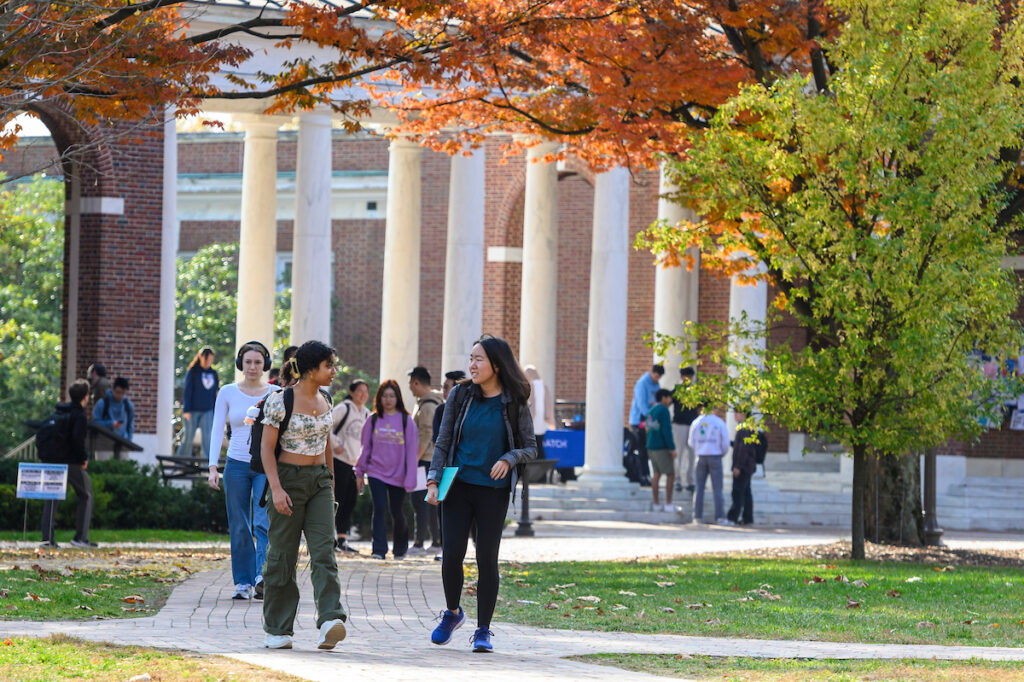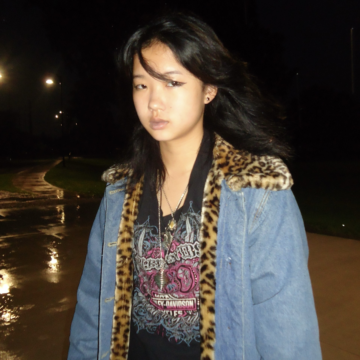
By Summer Mai Li S., ’26
Growing up in a multicultural household, stories have largely shaped my childhood. My Jidu’s (grandfather’s) tales of sweeping date fields and the old tongues of Dongola served as focal lessons of my family’s Nubian history. Bedtime stories about my Great PaaPaa (grandmother), a Cantonese immigrant who raised three children in 1960s New Haven, Connecticut, introduced me to the profundity of Asian migrant identity. With age, these stories have continued to encourage a deep interest in the shared struggles and triumphs of oppressed populations—an admiration for the history and literature of families like my own.
Living in a society of constant political divide and civil unrest has prompted me to expand my knowledge of human rights and contribute to the tremendous worldwide efforts against social injustice. Namely, I wish to immerse myself in classrooms that help students acquire global perspectives and forge unique academic pathways. I am enthralled by courses that amplify repressed voices through surveying the ongoing legacy of Black, Asian, or Indigenous resistance. As an institution for interdisciplinary learning, Johns Hopkins University nurtures the exploration of said topics with course offerings including Black Against Empire and Modern East Asian Literatures Across Boundaries—curriculums capitalizing on narratives of fortitude and oppression. Beyond the classroom, I would thrive under the guidance of Hopkins’ resolute faculty members such as Jessica Marie Johnson, a scholar dedicated to augmenting subjugated history and cultivating well-informed minds.
Rather than leave my community behind, I want to bring our marginalized voices into powerful spaces. As such, across Hopkins’ multiple disciplines, I intend to engage in extracurriculars geared toward building solidarity between minority students. Programs with the Center for Diversity and Inclusion present the best opportunities to do so amongst others with a vested interest in social equity. I resonate with the Female Leaders of Color and their commitment to uniting women of color at the forefront of professional and academic discourse. Gaining this sisterhood would build on my experience interning for a woman-owned business, The Sustainable Socialite, as well as open doors to similar opportunities. Likewise, joining the Melanotes would encourage my artistic creation within a harmonious community of Black voices.
In addition to campus groups, I am drawn to the Hopkins Office for Undergraduate Research (HOUR). For me, research can reconcile outstanding issues and bridge generational gaps. In the spring of 2022, after two semesters of extensive study, I curated an academic workshop addressing female genital mutilation and cutting (FGM/C) as a polarizing public health issue affecting women across the East African diaspora—women like my aunt and grandma. Driven by the goals of safely confronting ethnocentric outlooks and educating students on culturally sensitive terminologies, my workshop’s discoveries on FGM/C prompted participants to speak out on the stigmatized issue. When I ponder on my place within Hopkins, next-level programs including HOUR solidify ways I can contribute to the institution’s diverse campus. My desire to transfer to Hopkins stems from our shared curiosity in life and the complex stories that build it.
Admissions Committee Comments
In her essay, Summer Mai Li reflects upon the power of intergenerational storytelling as a method for sharing the complex experiences of individuals living in political upheaval. Summer Mai Li connects the personal stories of her loved ones to global civil and human rights issues that she intends to study during her time at Hopkins. She recognizes the importance of taking an interdisciplinary approach within cultural studies, and she demonstrates her match for the Hopkins academic environment through an appreciation for a liberal arts education. Through her essay, the admissions committee not only gained insight into Summer Mai Li’s research interests, but also her unique perspective and how she hopes to continue exploring her identity in the next phase of her college career.
Summer Mai Li S.“Above all, I wanted the committee to recognize my purpose. If research has taught me anything it is that, while I stand as one, everything I represent speaks for the thousands of whom I can credit for my existence. For me, this essay is more than a proclamation that family is important, it is a testament to the stories I continue to reminisce upon—the victories and failures—that fuel my continuous desire for learning. My familiarity with Hopkins as a research school encouraged an approach to writing which emphasized my passion for storytelling. Through my transfer essay, I hoped to highlight Hopkins’ and my similar definition of research as an exploration.”





